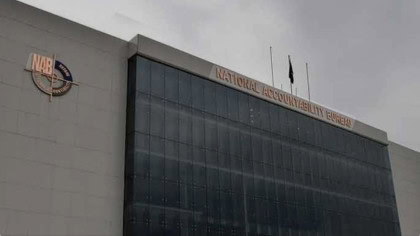KARACHI – The government of Pakistan has ambitious plans to harness surplus energy for Crypto mining to woo foreign investment, and to push South Asian nation into forefront of digital transformation.
After forming Pakistan Crypto Council for crypto regulation, the government is set to enter Bitcoin mining industry by allocating two thousands MWs of surplus electricity to support Bitcoin mining. Led by Bilal Bin Squib, the initiative seeks to modernize the economy and position Pakistan as a regional hub for digital technologies.
The decision comes amid challenges such high electricity tariffs and underutilized power plants. By dedicating unused electricity capacity to Bitcoin mining, Pakistan aims to transform wasted energy into a new source of revenue while fostering technological growth and attracting foreign investment.
The move also raised questions as Bitcoin mining required massive electricity and computing power, and become a lucrative industry worldwide, with countries like the United States, Russia, and Kazakhstan dominating due to their access to cheap and abundant energy. Pakistan hopes to join this club by leveraging its surplus electricity to entice international crypto mining firms and establish itself as a regional digital hub.
Bitcoin Mining in Pakistan
Experts claim that this move will not only generate economic returns but also create high-tech employment opportunities and strengthen Pakistan’s digital infrastructure. “This is a strategic shift where we convert our energy surplus from a financial burden into an opportunity for economic growth and innovation,” said a government representative involved in the project.
- Generate revenue from unused energy
- Attract international crypto mining companies
- Create high-tech jobs in the digital sector
- Build a foundation for a strong digital economy
However, challenges remain, including environmental concerns, regulatory frameworks, and equitable energy distribution in regions still facing power shortages. Despite this, Pakistani authorities are optimistic that Bitcoin mining and AI data centers will play a critical role in the country’s economic modernization and digital transformation.
As global interest grows in using stranded or surplus energy for cryptocurrency mining, Pakistan’s entry signals its ambition to become a key player in this high-tech and energy-intensive industry.
Top Crypto Currencies To Mine in 2025
Cryptocurrency evolved significantly from its early days. What was once possible on a personal computer now demands specialized hardware and technical expertise.
Experts say that choosing the right coin to mine is more important than ever. A new report highlights seven top cryptocurrencies worth mining in 2025, emphasizing the differences in hardware requirements, mining difficulty, and profitability. Whether miners use ASICs or GPUs, understanding block rewards and associated costs is essential to maximize returns.
| Cryptocurrency | Mining Algorithm | Difficulty | Hardware | Block Reward | Average Block Time | Estimated Hardware Cost |
|---|---|---|---|---|---|---|
| Bitcoin | SHA-256 | Very High | ASIC | 3.125 BTC | 10 minutes | $3,000 – $6,000 |
| Ethereum Classic | Etchash | Moderate | GPU | 2.56 ETC | 15 seconds | $1,500 – $5,000 |
| Dogecoin | Scrypt | Moderate | ASIC | 10,000 DOGE | 1 minute | $10,000 – $15,000 |
| Litecoin | Scrypt | High | ASIC | 6.25 LTC | 2.5 minutes | $10,000 – $15,000 |
Governments can mine cryptocurrency by setting up large-scale mining operations with specialized hardware like ASICs or GPUs, often taking advantage of cheap or subsidized electricity. They may join mining pools or run their own mining farms under official regulations to ensure legality.
China remained once the world leader in Bitcoin mining before banning it, and countries like Venezuela and Iran have used mining to earn foreign currency.
Pakistan allocates 2000 megawatts of electricity for crypto mining, AI Data Centers



















